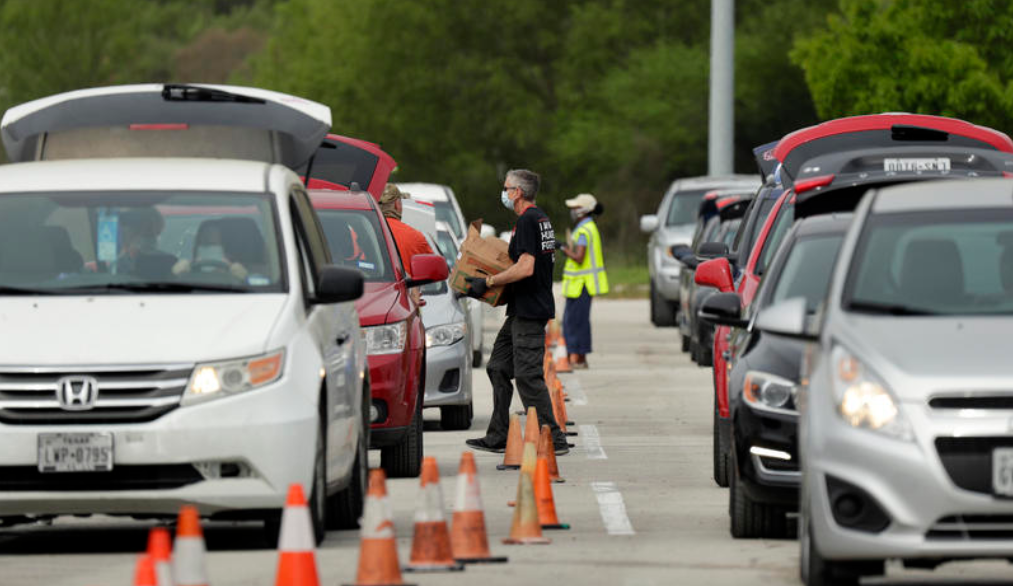
There is an understandable wish that something good come out of a tragedy.
It’s normal, right? Uniquely human. To experience a painful, uncertain time filled with suffering – especially for our most vulnerable populations – and to hope for a silver lining.
Hope gives us something to look forward to. A dream for better times and the will to work toward bringing those times about much more quickly than they’d otherwise arrive.
In these days of social distancing, the most heroic work we can do for a better future is often to stay home.
So we’re keeping busy. This has been my routine. Reading, writing, and communicating with education choice advocates around Florida and the United States. Everyone wondering how – or if – society will change as a result of these past few months.
My allies in this fight hope that opponents of education choice will rethink their opposition. Perhaps they’ll come out the other side supporting different ways to educate kids.
I get emails and texts from conservative friends with messages like, “Maybe your people will broaden their thinking on education choice now?”
My people.
(They mean those who lean to the left.)
I stop. Take a deep breath. Try to remember what my grandmother used to say, “Catherine, count to 10 before you say something. And then don’t say it.”
Then I go the other way.
“First of all, let me say that I’d love that,” I reply. “Sincerely. Let me also say that it’s not easy for anyone to reconsider a deeply held belief, about anything. Start with yourself. For example, have you looked around these last few weeks and reconsidered your opposition to paid leave, universal basic income or health care?”
“They aren’t connected.”
“Oh, but they are.”
Silence.
Challenges to deeply held beliefs don’t usually trigger introspection. Too often, they trigger an instinct to stubbornly hold on to those beliefs. As we all know, looking outside ourselves is easier than looking in a mirror.
“What about that guy?” instead of “How can I evolve?”
We criticize others for what we dislike about ourselves, so we ask rhetorical questions and then answer them.
Example: The few, the privileged, are upset that schools might close until fall or, even worse, hand out packets of paper for kids to complete assignments rather than use the internet. Schools have to accommodate everyone. And everyone does not have the same environment at home.
They ask themselves, “What would I need to succeed if I was a low-income person?”
“I know,” they answer. “An iPad!”
They didn’t actually ask anyone, because they don’t know low-income people. Not even on Facebook.
They think up solutions on their own, get buy-in from other privileged people, decide it makes sense and call their favorite editor.
Their argument: Everyone is suffering for the sake of a few.
Well, yeah. Welcome to the party, pal.
I guess “everyone suffering for the sake of the few” is acceptable when the middle class and working poor are “everyone suffering for the sake of a few” shareholders.
In that scenario, we have the American Dream.
But when the entitled are suffering for the sake of the underserved?
Not so great.
This is what most conservatives don’t want to face: For better and worse, we are all connected.
When faithful friends on the right tell me, “God helps you, even if you don’t believe,” I often want to respond, “Social democracy works the same way.”
Nobody gets anywhere on their own. Never have. Never will. We rise or sink together.
We depend on each other.
We. Are. Connected.
Period.
Here’s another blow: Giving everyone the same technology won’t yield the same results. Children in need require more than an electronic device and Wi-Fi connection to work productively at home.
As always, the child living in a stable environment will be fine when the lockdown is over.
Consider the child with parents who must continue risking their lives delivering groceries because there is no paid leave. Or the teenager caring for younger siblings because childcare isn’t affordable. A family of five squeezed into one apartment because housing costs are so high. The hungry student who has no access to food. Sick parents who work every day because they can’t afford to lose health insurance.
If you think those kids can focus on reading assignments or long division, you have been quarantined inside your gated community a bit too long.
Education isn’t an independent entity.
Neither are human beings.
Innocent children suffer from a host of ills, and right now, education is the least of their concerns. Parents are worried about losing their homes, their kids, their lives.
A separate issue, you say?
Maybe check with your favorite scholarship funding organization about the reduction of new applications right now and you’ll find out real quick that these issues are not as separate as you’d like.
Not by a long shot.
The best way to encourage others to rethink firmly held positions is to lead by example. Model the behavior you’re seeking.
I’ll go first: I once disliked Andrew Cuomo and coffee. Now, I can’t live without daily doses of both.
Go ahead. Give it a try. It doesn’t hurt nearly as much as you imagine. Rethink your own prejudices before asking others to rethink theirs.
That’s what I’m hoping for.


